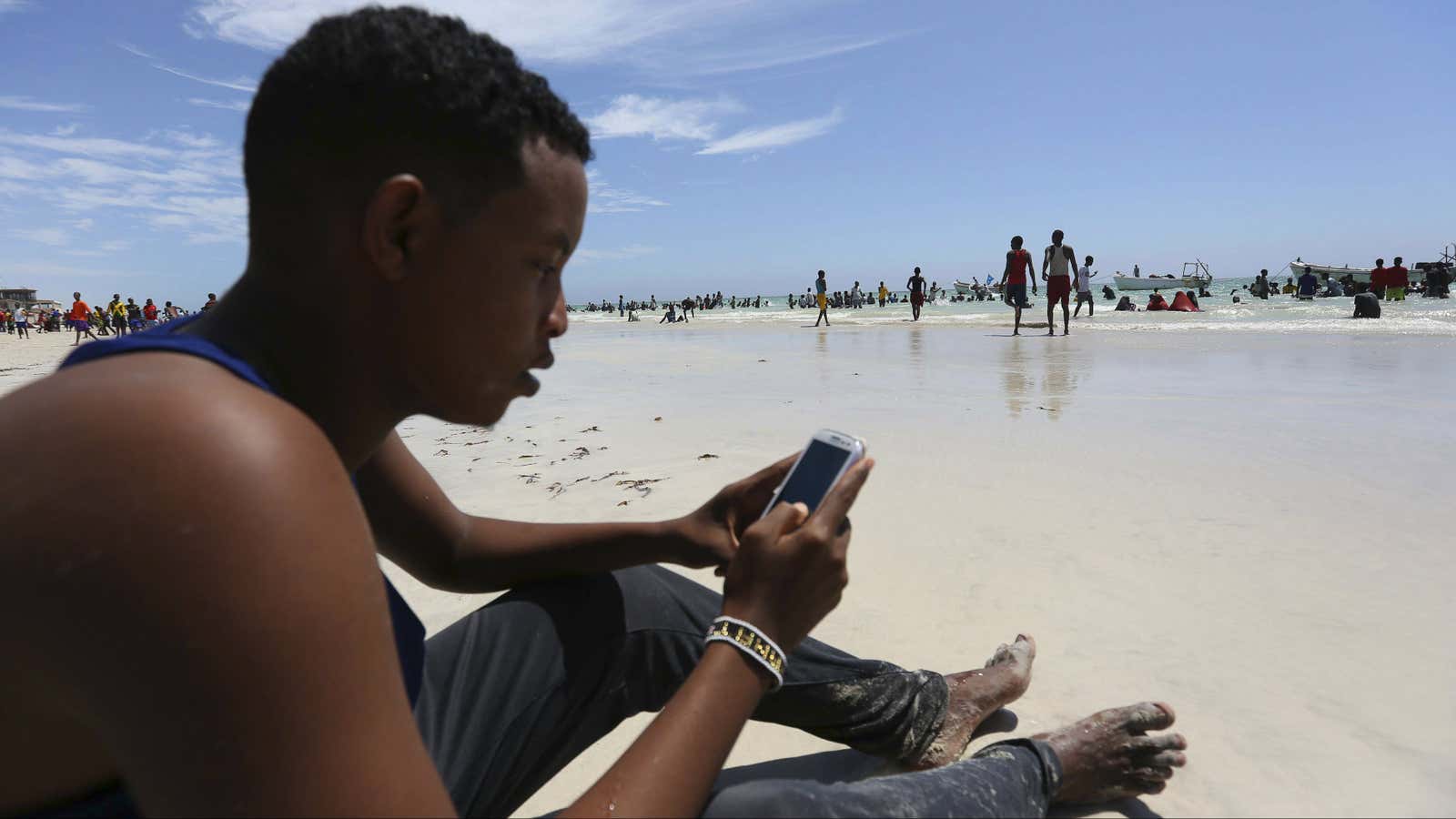As the African continent edges closer to 1 billion mobile subscribers, offering sufficient internet capacity will become more important as demand for connectivity rises.
New research from the TeleGeography—an international telecommunications research firm—shows Africa’s internet capacity is growing faster than other world regions. Internet capacity, or bandwidth— measures the speed of data an internet network can transmit, usually expressed in bits per second (bps).
As we have previously reported, undersea broadband cables, like the Sea Cable System (Seacom), the Eastern Africa Sub Cable System (Eassy) and the West African Cable System (Wacs) have helped accelerate Africa’s access to international bandwidth by 20-fold in just five years.
But while international internet capacity growth has slowed down, dropping from 41% in 2011 to 31% in 2015, Africa has seen its internet capacity grow by 51% over the past five years.
The Oceania region came second to Africa with its internet capacity having grown at 47%, while the Middle East came in as third place with a growth rate of 40% over the five year period. Capacity in Latin America and the Middle East grew 44% per year, while the United States and Canada experienced the slowest growth in internet capacity at a growth rate of 33% compounded annually.
While Africa’s internet capacity may be growing, it remains slow when compared to other countries in the developing world. Rankings from the International Telecommunications Union (pdf, pg. 5) show how many African countries have a low 1kb of international internet bandwidth per user.
For Africa to benefit meaningfully from its growing internet capacity, more locally hosted internet content and infrastructure is needed.
